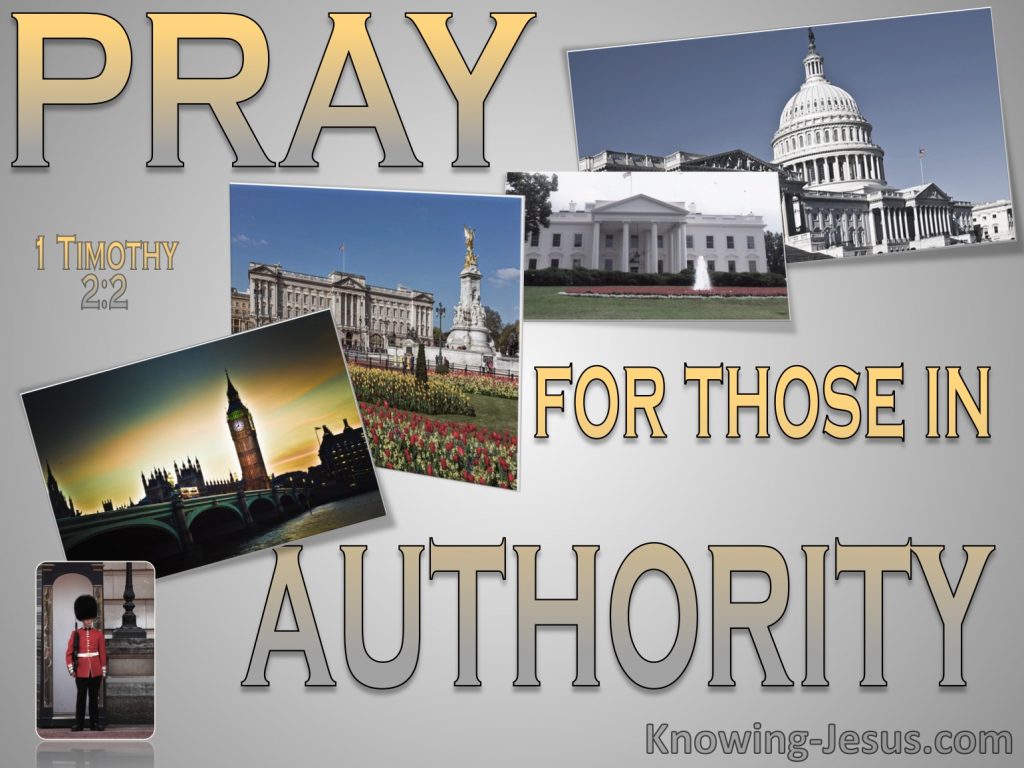The Book of the First Epistle to Timothy presents the most explicit and complete instructions for church leadership and organization in the entire Bible. Paul wrote this epistle to Timothy to help the young Church leader better understand his duties. In this letter, Paul addresses church leadership and makes clear that a church should be known for its devotion to Jesus and the way of love.
Paul wrote the epistle First Timothy chapter 2 during his second imprisonment in Rome shortly before his martyrdom, between A.D. 64 and 65. Paul exhorts the men to pray peaceably. In particular, he wanted them to avoid anger and an argumentative spirit.
Teachings in the Book of 1 Timothy, chapter 2.
The purpose of First Timothy was to instruct Timothy, a Church leader in Ephesus, to ensure that sound doctrine was taught and not to allow popular untruths to distract from Christ’s teachings. Paul sent the letter because he intended to visit Timothy in person, but he was unsure whether he would be able to do so (1 Timothy 3:14; 4:13).
Paul teaches about the need for prayer and proper worship. He instructs men and women on how to conduct themselves during worship.
First of All
Paul begins the second chapter with the phrase “First of all.” He does not refer to time; he refers to importance. The first importance in the heart and mind of Paul is the public worship of Christians.
This begins a series of instructions for those meetings. Paul urges that supplications, prayers, intercessions, and thanksgiving be made for every one (1 Timothy 2:1–2). The aim of this prayer is that Christians may lead a quiet and peaceable life in all godliness and dignity (1 Timothy 2).
Categories of Our Prayers to God
The terms “supplications, prayers, intercessions, and giving of thanks” describe the wide categories of our communication with God. These are the kinds of prayers that should be offered when God’s people come together.
- Supplication is simply asking for something. Prayer should never be all asking. But prayer should ask in bold confidence from God’s Word.
- Prayer is a broad word, referring to all communication with the Lord.
- Intercessions refer to the requests we make on behalf of others. As we pray, there should be a time when the needs of others find a place in our prayer before God’s throne.
- Giving thanks is an essential part of our walk with God. Those who lack a basic sense of gratitude in their lives lack a basic Christian virtue.
The aim of such prayer is that Christians “may lead a quiet and peaceable life in all godliness and dignity” (1 Timothy 2:2).
Pray for All People
Christians supposed to pray for all people. God has placed the entire human race at the focus of His attention, to redeem them for Himself and to dwell with them forever.1

“All men,” tells us whom we are to pray for with the various means of prayer. The idea is that all men need prayer. Christians have never met someone that they cannot or should not pray for.
Most Christians find it easy to pray for their family, friends, and loved ones, but it should not end there. We should also pray for our enemies and for those with whom we have conflict. We should pray for those who annoy us, and for those who seem to be against us. Each of these people fall into the category of “all men.”
To pray for all men also means to pray evangelistically. We should pray for our friends who need to know Jesus, for our coworkers, and for others that we have regular contact with. To pray for all men also means to pray for your pastors, to pray for your church, and to pray for other ministries you know and love.
1 Timothy 2:4 says “all men to be saved.” God is “not willing that any should perish” is also the testimony of 2 Peter 3:9. 2; 3 Paul exhorts that intercessions should be made for all men (1 Timothy 2:10).4 The fate of the sinful is not pleasurable to God (Ezekiel 18;23; 33:11; 1 Timothy 2:4; 2 Peter 3:9). 5
Certain classes are specifically mentioned in Scripture as objects of intercession: rulers (1 Timothy 2:2), Israel (Psalm 122:6), the unsaved (Luke 23:34; Acts 7:60), all saints (Ephesians 6:18; 1Timothy 2:1; James 5:16), backsliders (1 John 5:16), and our enemies (Matthew 544). 6
Christ makes intercession for us (Romans 8:34; Hebrews 7:25) and so does the Holy Spirit (Romans 8:26, 27). Our prayers, therefore, should surely include intercessions for others. 2
God wants all men to be saved. On the other hand, the Bible indicates that God chooses some (not all) people to be saved (1 Timothy 4:10; Romans 8;29). 7
“Giving of thanks be made for all men” means we can find something to thank God for regarding everyone. Even those who persecute us and are against us have a place in the over-arching plan of God.
Pray for Governing Leaders

Christian prayers for all people includes kings, rulers, and government officials. The basis for this is that God wants to see such people saved; His love for them is as great as it is for anyone else.
Early Christians were often accused of undermining the state because they claimed a higher Lord other than Caesar. Yet they would point out that they supported the state by being good citizens and by praying for the emperor, not to him.
Paul said that we should give thanks for those who are in authority over us. We should give thanks for those who are in authority because God has ordained government in society to keep order (Romans 13:1-7).
The early church leader Tertullian explained: “We pray for all the emperors, that God may grant them long life, a secure government, a prosperous family, vigorous troops, a faithful senate, an obedient people; that the whole world may be in peace; and that God may grant, both to Caesar and to every man, the accomplishment of their just desires.” 8
We should pray for a government and rulers that would simply leave us alone and let us live as Christians.
Even when kings, rulers, and politicians seem hostile and evil, God wants all people to be saved through Christ (1 Timothy 2:4–5). At the time Paul wrote this letter, the notorious Roman Emperor Nero was the ruler of the Roman Empire (A.D. 54-68). Under him, Paul had been imprisoned and was soon to be executed. This shows that prayers and intercessions should be made for bad as well as for good rulers. 9
In Summary –
The Book of the First Epistle to Timothy presents the most explicit and complete instructions for church leadership and organization in the entire Bible. Paul addresses church leadership and makes clear that a church should be known for its devotion to Jesus and the way of love.
The second chapter of the first epistle to Timothy starts with the first importance in the heart and mind of Paul – the public worship of Christians.
God has placed the entire human race at the focus of His attention, to redeem them for Himself and to dwell with them forever.
Christian prayers for all people even include kings, rulers, and government officials. God’s love for them is as great as it is for anyone else.
__________________ SHOP: ________________


NASB Comfort Print Thinline Bible, Red Letter Edition–bonded leather, burgundy
By Zondervan
The beloved 1995 Edition of the New American Standard Bible is now easier to read with Zondervan’s exclusive NASB Comfort Print® typeface. This edition of the NASB Thinline Bibles is available in a variety of sophisticated designs in a portable, easy-to-read format.
- The full text of the New American Standard Bible, 1995 Edition
- Exquisite, durable covers
- Less than one inch thick
- Double-column format
- Presentation page
- Two satin ribbon markers
- Words of Christ in red
- Exclusive Zondervan NASB Comfort Print 9 point type
Features:
____________________________________________
In conclusion, consider what the Daily Bread email message sent on 1/18/2023 says,
1 Timothy 2:1-4 – First of all, then, I urge that entreaties and prayers, petitions and thanksgivings, be made on behalf of all men, for kings and all who are in authority, so that we may lead a tranquil and quiet life in all godliness and dignity. This is good and acceptable in the sight of God our Savior, who desires all men to be saved and to come to the knowledge of the truth. (NASB)
“First of all” does not refer to time; Paul refers to importance. The first importance in the heart and mind of Paul is the public prayers and worship of Christians.
You Can Receive The Daily Bread, for FREE.
To receive the Daily Bread email messages, free on Mon., Wed., and Fri., in your email inbox, just fill in the form below or send an email, and ask to be added, to jmikeh@jmhowington.com
References:
- H. Wayne House, “Creation and Redemption: A Study of Kingdom Interplay”, Journal of the Evangelical Theological Society 35 (March 1992) pg. 7.
- Morris, Henry, The New Defender’s Study Bible (Nashville, TN: World Publishing Inc, 1995 and 2006) pg.1859.
- Millard J. Erickson, Christian Theology (Grand Rapids, MI: Baker Book House Company, 1985) pg. 919.
- Henry C. Thiessen (revised by Vernon D. Doerksen), Lectures in Systematic Theology (Grand Rapids, MI: Eerdmans, 1981) pg. 303.
- Stanley M. Horton, general editor, Systematic Theology (Springfield, MO: Legion Press, 1994) pg. 288.
- Thiessen pg. 303.
- International Bible Society,The Holy Bible, New International Version, Study Bible (Zonderman Publishing House copyright 1973, 1978, and 1984.)
- Tertullian, Apologeticum, (Apologetic) (Albany, OR, Sage Software, 1996)
- Henry H. Halley, Bible Handbook (Grand Rapids, (MI: Zondervan Publishing House, 1992) pg. 631.
